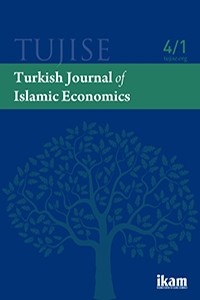UNGKU AZIZ’S PERSPECTIVE ON DEVELOPMENT
UNGKU AZIZ’S PERSPECTIVE ON DEVELOPMENT
This paper explores some key insights and lessons from Royal Professor Ungku Abdul Aziz bin Ungku Abdul Hamid (born 1922 – present), a celebrated academician in Malaysia, on development. Drawing from Ungku Aziz’s main articles, papers and books, the paper attempts to make wider connections with regards to Ungku Aziz’s endeavour in development. This paper sheds new light and draw lessons on the meaning of ‘development’ and its implications to the Muslim community. The main finding indicated that Ungku Aziz had creatively interpreted ‘development’ geared towards the needs of the local community away from the Western-centric notion and ideals. It is not mere imitation of modern Western conception of ‘development’, nor is it a wholesale rejection of it, but it is a creative interpretation that takes into consideration the economic reality as well as the spiritual, social and cultural well being of the local community. This study also revealed that the Ungku Aziz’s conception of ‘development’ has significant relationship with the right theological and civilizational interpretation of the religion of Islam. This paper contends that Ungku Aziz’s conception of ‘development’ should be expanded further using the right religious and civilizational framework as part of the continuous civilizing process of the Muslim world.
Keywords:
Ungku Aziz, Economic Thought, Development, Education, Well-Being Malaysia,
___
- Abd Hamid, Abu Bakar (Ed.), Et. al. (2010). Royal Professor Ungku A. Aziz: The Renaissance Man, Kuala Lumpur, Malaysia: University of Malaya Press.
- Arndt, H.W. (1989). Economic Development: The History of an Idea. Chicago, IL: University of Chicago Press.
- Al-Attas, Syed Muhammad Naquib (1978). Islam and Secularism. Kuala Lumpur, Malaysia: ISTAC.
- _______ (1998). Prolegomena to the Metaphysics of Islam. Kuala Lumpur, Malaysia: ISTAC.
- Cowen, M. & Shenton, R.W. (1996). Doctrines of Development. London, UK: Routledge.
- Ozay Mehmet (1999). Westernizing the Third World: The Eurocentricity of Economic Development Theories. London, UK: Routledge.
- Rist, Gilbert (2008). The History of Development: From Western Origins to Global Faith (3rd edition). London, UK: Zed Books.
- Setia, Adi (2011). Mu’amala and the Revival of the Islamic Gift Economy. Islam & Science, Vol. 9(1), 67-78
- ________ (2013). Fard al-Kifaya, Mu’amala, and the Commonweal: Reconnecting Economics and the Economy to the Communities. Islam & Science, 11(1), 83-97
- Ungku Abdul Aziz (1957). Facts and Fallacies on the Malay Economy. Singapore: University of Malaya Press.
- __________ (1959). Pilgrims Economy Improvement Programme. A plan submitted to the government of the Federation of Malaya on December 22.
- __________ (1964). Poverty and Rural Development in Malaysia. Kajian Ekonomi Malaysia, 1(1), 75-105
- ___________(1983, August 16). Must patterns of change in developing countries follow the West? What other possible patterns? Paper presented at the Association of Commonwealth Universities Congress, Birmingham, UK.
- Wan Daud, Wan Mohd Nor (2005). Pembangunan Di Malaysia: Ke Arah Satu Kefahaman Baru Yang Lebih Sempurna (Development in Malaysia: Towards a Holistic New Understanding). Kuala Lumpur; Malaysia: ISTAC.
- ___________ (1994). Some Basic Issues of Development in Malaysia, Malaysian Development Experience: Changes and Challenges. Kuala Lumpur: National Institute of Public Administration, 855-880.
- Başlangıç: 2014
- Yayıncı: Research Center for Islamic Economics (ikam)
